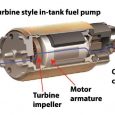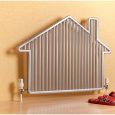There’s a reason why the HVAC market in North America is worth an estimated $13.8 billion. We often take cooling and heating for granted in our everyday life. But, the second it’s gone we all of sudden can’t live without it.
No one wants their HVAC system to experience a sudden failure. So, to stop this from happening it’s important to keep up with how old your HVAC system is. That way, you can replace it when it’s getting old.

But what is the typical lifespan of HVAC? If you want to learn the answer, then you’re in the right place. In this article, we’ll teach you everything you need to know about HVAC lifespans.
What’s the Typical Lifespan of HVAC?
The short answer is that most HVAC systems will last between ten to twenty years. However, the long answer is that each different HVAC component has a different lifespan. For example, air conditioners will last between ten and fifteen years.
Furnaces last a little longer — between fifteen and twenty years. Water heaters will last around ten years if they have a tank and twenty years if they’re tankless.
What Factors Affect the Lifespan?
There are a variety of factors that can affect the lifespan of an HVAC system. The biggest factor is typically lack of proper maintenance. This can cause key components to break down.
However, the second biggest factor is oversizing or undersizing a system. This is installing an HVAC system that’s either too big for an area, or too small.
The frequent on and off-cycle can lead to motor failure. The environment of your building can also play a role. For example, if you live in a coastal area, then there’s likely a lot of salt around. This can easily lead to corrosion if you don’t get it regularly maintained.
How Do You Prolong the Life of Your HVAC System?
If you want to prolong the life of an HVAC system by five or more years, then maintenance is key. Make sure that you’re frequently changing the filters on the system. Also, you schedule annual checkups with a professional.
Make sure you’re also checking on outside components. They should be cleaned and cleared of debris. Sadly, even the most well-maintained HVAC system will eventually break down.
When it does it helps to have HVAC insurance for homeowners. That way, a new system doesn’t cost you an arm and a leg.
Want More Content? Keep Reading
We hope this article helped teach you more about the average lifespan of HVAC. As you can see, most HVAC systems last for a pretty long time. However, it’s important not to lose track of time or forget about it.
Otherwise, there’s a good chance that it will eventually experience a malfunction. Did you enjoy this article? If the answer is yes, then you’re in the right place. Keep exploring to find more topics that you’re sure to love.




